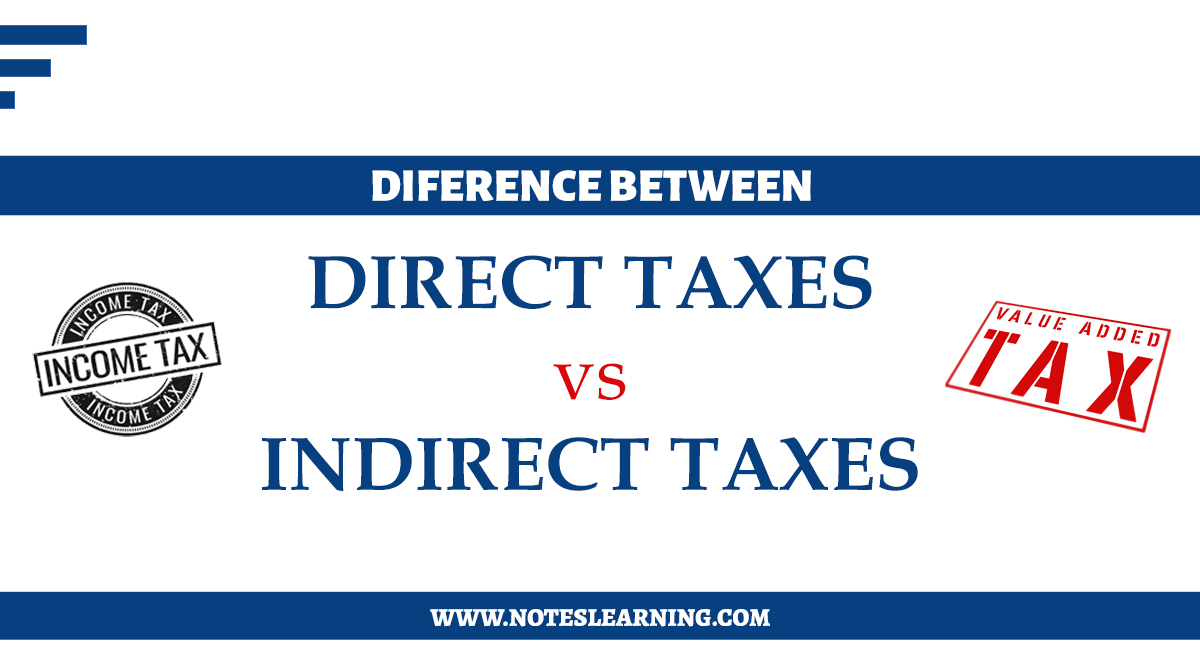Introduction to taxation
Taxation is a major source for the government to generate revenue for expenditure and operations. Hence, taxation is a very important concept in the modern economy. It is necessary to understand the concept of taxation along with its components and implications. Taxation has been classified in different manner considering its scope and implication. Some of such classifications are:
| Basis of Incidence | Direct Taxes Indirect Taxes |
| Basis of Collection | Central Taxes State Taxes Local Taxes |
| Basis of Purpose | Revenue Taxes Regulatory Taxes |
| Basis of Time | Annual Taxes Transactional Taxes |
| Basis of Progressivity | Progressive Taxes Regressive Taxes |
| Basis of International Transactions | Domestic Taxes International Taxes |
Indirect and Direct taxes are types of taxation classified on the basis of who bears the ultimate burden or incidence of tax. It is essential to understand the difference in the taxes i.e. direct and indirect taxes. Some of the differences in these two types of taxes are presented below.
Difference Between Indirect Taxes and Direct Taxes
| Basis | Direct Taxes | Indirect Taxes |
| Basis of Incidence | Direct Taxes are imposed directly to individuals or entities based on their income, profits or wealth i.e. taxes are borne by the taxpayer and cannot be shifted onto others. | Indirect taxes are levied upon production, sale, or consumption of goods and services. The burden of such indirect tax is passed on to the final consumer. |
| Shifting of Burden | The taxpayer is directly responsible for paying the tax Such taxes cannot | Taxes are passed on to the final consumer. The intermediaries collecting the taxes pass on the burden to the final consumer. |
| Progressiveness | Direct taxes are progressive in nature. This means, as income increases, tax rates also increase. The more you earn, the more you pay taxes. | Indirect taxes are often regressive in nature. The low-income individuals pay more in indirect taxes in proportionate to their income as such taxes are generally fixed. |
| Impact | Direct impact on the income, profit or wealth of the individual or organizations. | Indirect taxes impact the prices of the goods and services resulting in change in behavior of the consumer. |
| Nature | Direct taxes are more equitable. This means, high income leads to higher tax. | Indirect taxes are less equitable. Low income individuals pay proportionately higher taxes. |
| Compliance | Direct taxes are complex to calculate, to file tax and to assess tax. | Indirect taxes are collected at the point of sale and compliance may require regular reporting and documentation. |
| Inflation | Direct tax helps in reducing inflation. | Indirect taxes promote inflation. Higher the indirect taxes, higher is the price of product or cost of consumption, which is inflation. |
| Examples | Income Tax, Corporate Tax, Property Tax, Capital Gain Tax, Wealth Tax | Value Added Tax (VAT), Goods and Services Tax (GST), Excise tax, Custom tax, Sales Tax |
Reference



1 thought on “Difference Between Direct and Indirect Tax”